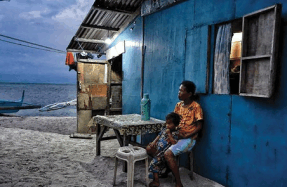

On the night of 6 August 2021, a 42-year-old farmer in Maharashtra’s Yavatmal district died from pesticide poisoning. Vinod Masram Chavan had been exposed to the pesticide Nuvacron while spraying his cotton crop to protect it from the deadly pink bollworm, the Times of India reported. The pesticide contained monocroto-phos, a toxic compound that is internationally classified as extremely hazardous and whose use had been restricted in Maharashtra. Chavan’s death was reported as the first from pesticide poisoning in the region in four years. It revived the spectre of the many casualties in the state in 2017, when more than sixty farmers died and hundreds suffered from pesticide exposure and poisoning.
Deaths from pesticide poisoning are old catastrophes in India’s farmlands. Over many years, pesticides have posed an unacceptable risk to the larger Indian population, but especially to the farming community. One of the worst examples is the disaster that unfolded between 1980 and 2000, when thousands of people in Kerala and Karnataka developed peculiar and complex illnesses due to exposure to endosulfan, which was not regulated and had been liberally used on cashew plantations. Later, in 2002, news outlets reported that at least five hundred farmers died of pesticide poisoning in Andhra Pradesh. An analysis of the global distribution of acute pesticide poisoning published in the journal BMC Public Health in December 2020 estimates that 62 percent of farmers in India suffer unintentional occupational poisoning every year—much higher than the global average of 44 percent.
There is also a massive toll of casualties from farmers using pesticides to take their own lives. A study on self-poisoning in India, also published in BMC Public Health, showed that nearly four hundred and fifty thousand cases between 1995 and 2015 involved the consumption of pesticide. Since September 2017, a number of attempts at self-harm by ingesting the weedicide paraquat, many resulting in death, have been reported from western Odisha.
India has long needed better regulation of pesticides to prevent such disasters. However, despite recurring tragedies, several union






